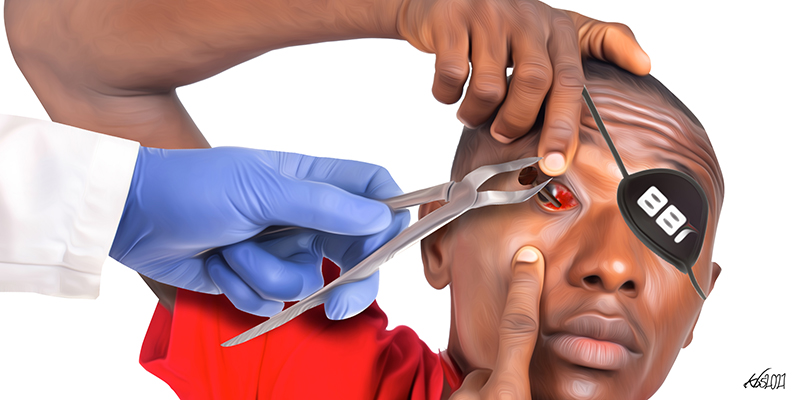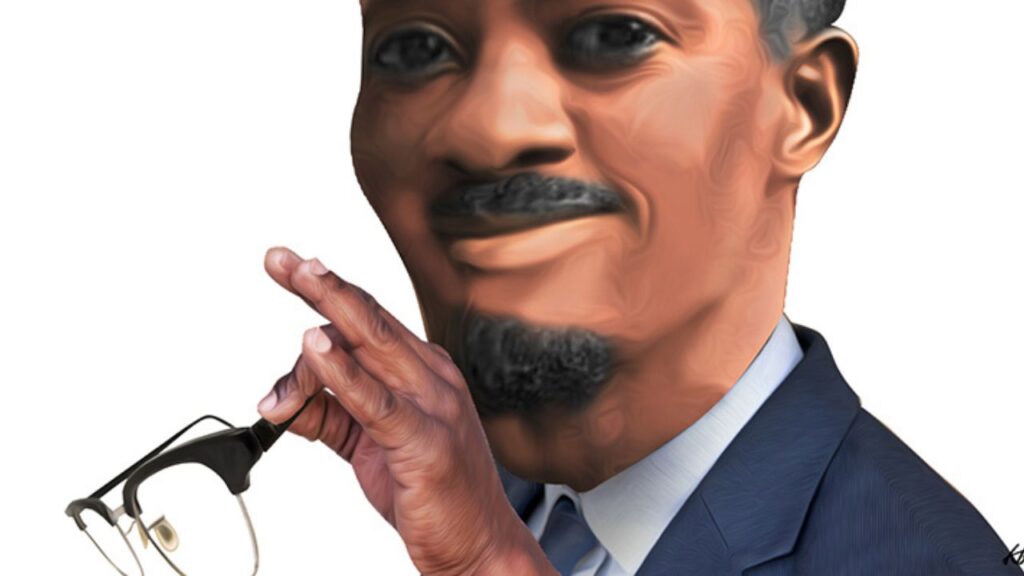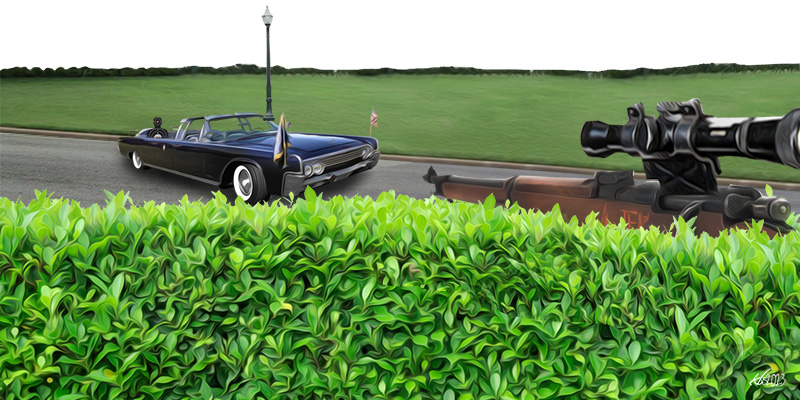It is now fairly well accepted in the public discourse outside Kikuyuland that the alcoholism and suicide rates among Kikuyu men are related to the soul pact which the Kikuyu community has signed since 1969 to keep the Kenyattas in power. It is a phenomenon that creates a lot of bitterness in the rest of the country, especially within the communities that have most recently suffered large-scale state violence, such as that witnessed in Kibra and Kisumu in 2017 during the protests against the disputed election of Uhuru Kenyatta.
The extremely slow realisation that the Kikuyu are becoming isolated from the rest of Kenya has started to produce a literature in which the Kikuyu are portrayed as having acknowledged the mistake they made in supporting Uhuru in 2017.
This narrative, however, still contains the supremacist blind spot which Kenyans complain about. The realisation of the mistake comes not from a deep regret about the loss of non-Kikuyu life, including the fact that some Kikuyu supporters of Jubilee cheered on the police massacres that largely targeted the Luo community. Rather, the regret comes from a bad business environment, implying that if business was doing well, all things remaining constant, there would be no problem with what happened in 2017. In other words, money is more valuable than non-Kikuyu life.
As one can imagine, this hubris makes many Kenyans livid. But unfortunately, it is not enough to say that the empathy the Kikuyu are seeking is still selfish and narrow-minded. Although it is. Rather, we must analyse how this hubris became entrenched among the Kikuyu, because the mechanisms which have made the Kikuyu collectively oblivious of the national sentiment are actually contained in the BBI which was recently deemed unconstitutional by the High Court.
Embedded in BBI was the disease that has led to the collective zombification and self-decimation of Kikuyu men, and which would have spread to the rest of Kenya. Ultimately, BBI was less about institutional change and more about a change in the collective Kenyan soul. BBI did not call for change in the status quo; rather, it sought a change in our attitude towards the status quo, an attitude that has already taken Kikuyu masculinity captive.
The culture of Uthamakistan
The unstated religion in Kikuyuland is that being a Kikuyu man is the best thing since sliced bread. This religion is reaffirmed at various gatherings (weddings, funerals, church services) where men are encouraged to affirm a manhood that is modelled on the local rich man who owns land and drives around in an SUV, and ultimately on Uhuru Kenyatta himself. This model of masculinity is a Kenyanification of the colonial white settler. In fact, had it not been for technology and independence, the alpha Kikuyu male would have a horse instead of a Prado, and would have called himself Sir Charles or Prince Andrew. I’ve been told that such men do exist in the exclusive clubs formerly frequented exclusively by colonial settlers, but the only one I’ve seen is former Attorney General Charles Njonjo.
The message in Kikuyu country is that there is no other alternative to manhood. In some ceremonies I have attended, even in church, this reification of what one would call Uthamaki masculinity is presented as a cultural obligation. Kikuyu men are told that other Kenyan ethnic groups are proud of their identity, but Kikuyus are ashamed of theirs, and so joining groups like the kiama kia ma is an obligation to not just the ethnic group, but to a pan-African identity as a whole. This narrative is not only widespread, but it is also comprehensive, because it covers property, education, culture, faith, gender and anti-colonialism, making it difficult for an ordinary man without a sufficient grasp of history and political education to resist it.
Inevitably, this model of manhood excludes the majority of Kikuyu men who are without economic means and social status. So what are the options for such Kikuyu men who do not own property?
Alcohol and suicide. Alcohol to silence the voices in his head asking him to be what he cannot be, and because he can’t burn down the media houses, Jogoo House and the churches to shut those voices up. After all, the Uthamakistan message is that those institutions are “his” and if he can’t enter them, Muigai is doing so on his behalf. So he can’t fight the institutions that are “his”.
The other option is suicide in order to get out of the system altogether.
And this was the suffocation that Binyavanga Wainaina was fighting against. He was saying that the narrative of the straight pipeline which says “go to school, get a job or start a business” was “crap”. To illustrate, Binyavanga gave the example of someone with two masters’ degrees paying a 300,000 shillings bribe to get a job as a private in the Kenya Defence Forces. Throughout his life, Binyavanga called for a variety of stories and innovations to counter this single story that is strangling Kikuyu men, and ultimately all Kenyans.
This model of manhood excludes the majority of Kikuyu men who are without economic means and social status.
What Binyavanga was calling for was a fundamental reconsideration of what it meant to be human, and for an imagination of what a human Kenya would look like. The status quo responded viciously. Kwani?, the platform for his cultural action, was welcomed with hostility by the academy that called writers associated with him “literary gangsters”. In the end, Binyavanga spent his last days struggling to pick himself up as the legacy he had struggled to build began to decline.
Granted, Binyavanga had not reckoned with the ethnic dimension of what he was fighting against, and often wavered between supporting and opposing the government. But he was onto something, and the seed which he had planted needed the soil, water and sunlight of Kenya’s diversity and creativity to germinate.
And this is not to suggest that Binyavanga was the only one who had this seed. He probably got as far as he did because he was a Kikuyu man. In other areas of Kenya, such seeds never see the light. Culture and arts in Kenya have buckled under the weight of a claustrophobic public life that is hostile to any public gathering of Kenyans outside political rallies or the inevitable weddings, initiations and funerals. And BBI had proposed penetrating even those ceremonies by providing the syllabi to be used at initiations and the material to be used in marriage counselling.
And so the purpose of BBI was two-fold: to not only prevent different imaginations of what Kenya can be, of a Kenya that is not centred around the figure of the Kikuyu or white settler male who offers no innovation or social service, but to also suck in the rest of Kenya into this narrow, racist archetype of manhood. BBI sought to infiltrate faith, initiation ceremonies, schools, marriage, history and education to ensure that the seed of the propertied ruling class is planted in every mind in every corner of Kenya.
The Kenyatta head start
The tragedy of the handshake was that the supporters of the initiative thought that the handshake was an equal partnership, when it was not. The Kenyattas already dominate the cultural space and imagination of Kenya, and so the proposals in the BBI simply gave them a greater advantage than all the other Kenyan communities, ethnic or not. The Kenyatta name already brands the nation’s major conference centre, the national referral hospital, two universities, the largest international airport, a major street in the capital city and the largest public beach at the coast. The name of Uhuru Kenyatta’s mother, Mama Ngina, is now carried on the rebuilt waterfront which her son inaugurated on Mashujaa Day in 2019, a day which was renamed precisely for the opposite purpose, that of divorcing Kenya’s historical memory from its personification in the Kenyattas.
The Kenyattas even have the grave of their patriarch in the central business district, next to where the elected representatives make policy for the rest of Kenya. During the Uhuru presidency, laying a wreath at that grave is a protocol for foreign dignitaries visiting Kenya. Uhuru’s government also used a statue of the president’s father on Kenya’s new bank notes, circumventing the law that stipulates that a human portrait shall not be used. The cynical argument was that the image was of a statue of Jomo Kenyatta, rather than of Jomo Kenyatta himself.
The tragedy of the handshake was that the supporters of the initiative thought that the handshake was an equal partnership, when it was not.
The basic message is that Kenya’s national identity is synonymous with the Kenyattas, and is not to be shared with any heroes or historical milestones from the rest of Kenya. Other heroes can be commemorated in the 46 counties but not in Nairobi, which the BBI assigned a special status because of the foreign (read Euro-American) expatriates who live there. If Kenyans wanted to remember Mekatilili, for example, it would have to be done in Malindi and not in Nairobi.
Uhuru Kenyatta’s government has also sealed any loophole that might be present in the education sector by reducing education to vocational training for children, and by crushing the incentive to the study the arts and humanities by paying lecturers in this field less than lecturers in STEM. And if BBI were to pass, history and ethics would be dominated by the Kenyatta family, since the BBI proposed the position of an Official Historian in the Office of the President.
Basically, what BBI was doing was to shut down any options for Kenyans to imagine a Kenya whose imagination is not dominated by the Kenyattas. And since that model of manhood embodied by Uhuru was not accessible to the overwhelming majority of Kenyan men, BBI would have meant that alcoholism and suicide would have become the means of escape from this suffocation.
Since Uhuru Kenyatta became president in 2013, the Kenyan state has been engaged in placing the Kenyatta family on the pedestal of manhood and humanity, and has been waging war against any model of manhood which does not exude the aesthetics of a propertied Kikuyu landowner. The fear of Luo men, including of Raila, is not about initiation. It is a fear of a different manhood whose identity is not attached to state power used for massive and primitive accumulation, a manhood that is different from the colonial settler manhood on which Kenya was founded.
We must all tell our stories
The state’s determination to protect this Kikuyu (white) alpha male is relentless.
That is why the so-called fight for the boy child that was started in Kikuyuland by Nderitu Njoka of Maendeleo ya Wanaume was started as a war against women, rather than as a war against the white supremacist Kenyan masculinity. The so-called oppression of men does not deal with the fact that the majority of victims of extra-judicial killings are young men, right from the slums all the way to universities.
The same model of masculinity accounts for why any man whose political thinking is different from that of the state is vilified in Kenya as being uncircumcised, womanly, gay or insane. That is if they are not expelled on a plane, beaten or shot in the streets by the police. That would answer Gathara’s pondering “why some Kenyans seem to imagine that being called either a woman or a homosexual is an insult.”
And unfortunately, the Kenyan church became coopted into this corruption of Kenyan masculinity through embracing the “family values” of the American evangelical right. The church did not recognise that even as evangelicals talk of nuclear families, they have a separate narrative of black male pathology, because white supremacy does not consider black (or African) men capable of belonging to stable families. The narrative of black male pathology is necessary to explain why black people are poor and disenfranchised. The Kikuyu elite justify Uthamakism with a similar rhetoric, arguing that poor Kikuyu men are a social problem created by empowered women or the “girl child”.
Since Uhuru Kenyatta became president in 2013, the Kenyan state has been engaged in placing the Kenyatta family on the pedestal of manhood and humanity.
The way ahead is not to decide which family is a real family. It is to send a strong message to the state that it has no business dictating what is in our bedrooms, our homes, our cultural spaces and in our education. The BBI proposed to extend the tentacles of the Kenyan state into marriages, initiation ceremonies, ethnicity, art and history, so that the Kenyan state would be re-made in the image of the Kikuyu (white) alpha male.
The solution is to tell our stories, and to fight against the state being the only decision-maker about who tells stories and what stories we tell. Even the position of prime minister proposed by the BBI was a means of alienating people from telling their stories, because it sought to prevent citizens from having a direct say in politics.
It is also important that we do not hate disenfranchised and culturally miseducated Kikuyu men so much that we fail to see that it is precisely that model of citizenship and manhood that was being prepared for all Kenyans. We need to resist the efforts of state to dictate our stories. We must fight for a Kenya that has space for all our stories, all our ceremonies, and all our histories.
And we must free our cultures and identities from the shackles of ethnicity. Since colonial rule, Kenyans have made the mistake of restricting culture to ethnicity, forgetting that culture also includes information, education, technology and art.
As Dan Ojwang explains, even Kenyan intellectuals have drowned in this medieval narrative of self-contained and rigid ethnic groups, and ironically in the name of fighting against the colonial project whose cultural model the intellectuals apply. Yet in history, Ojwang argues, there is ample evidence of hybridity even within ethnic groups before colonial rule. By contrast, BBI stuck to the ethnic lines drawn by colonialism, confining culture to ethnicity, and then bringing all other forms of cultural production under the direct control of the state.
We must fight for a Kenya that has space for all our stories, all our ceremonies, and all our histories.
But most of all, we need a new, deep Kenyan story, such as that of freedom, of a brave and proud people who defied oppression to assert our humanity. Mekatilili, Syokimau, Pio Gama Pinto, David Munyakei, Chelagat Mutai, Chris Msando, Onyango Oloo and Kioko Mang’eli are just a few of our heroes whose names should be on our buildings, in our awards and in our history books.
To call for a diversity of human accomplishment must not be reduced to facilitating women and non-Kikuyus to compete for the narrow definition of masculinity embodied in the colonial state and in the Kenyattas.
If that model of manhood is already proving to be deadly for the men from the president’s backyard, and for the women who innocently love them, how much more deadly would it be for the rest of Kenya?
Rest in oblivion, BBI. We rejoice at your demise.








